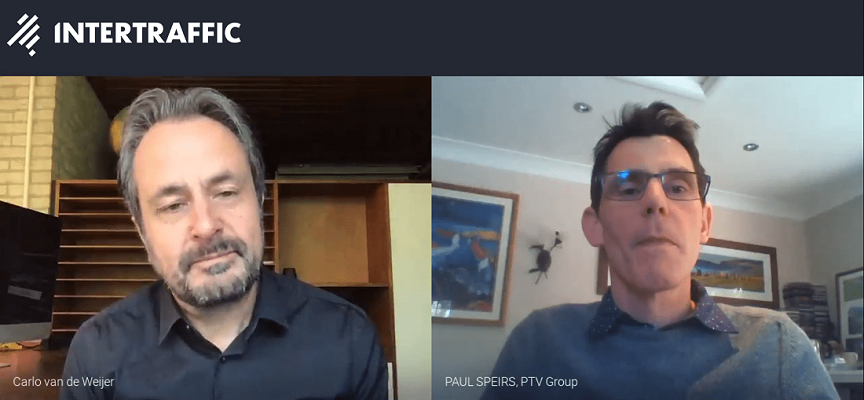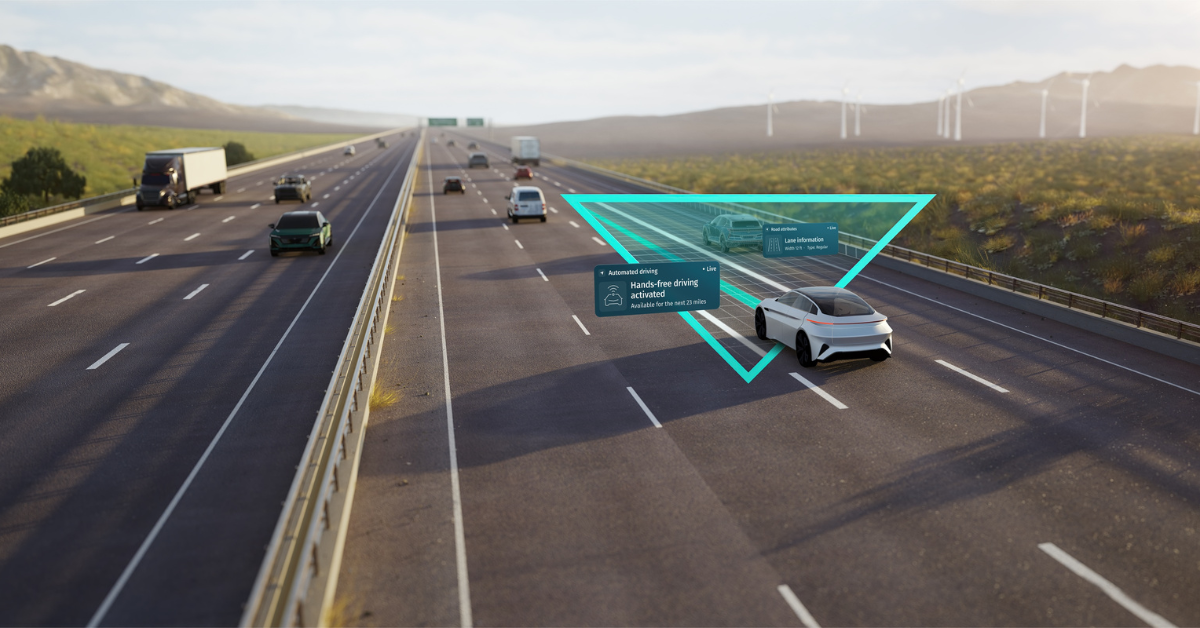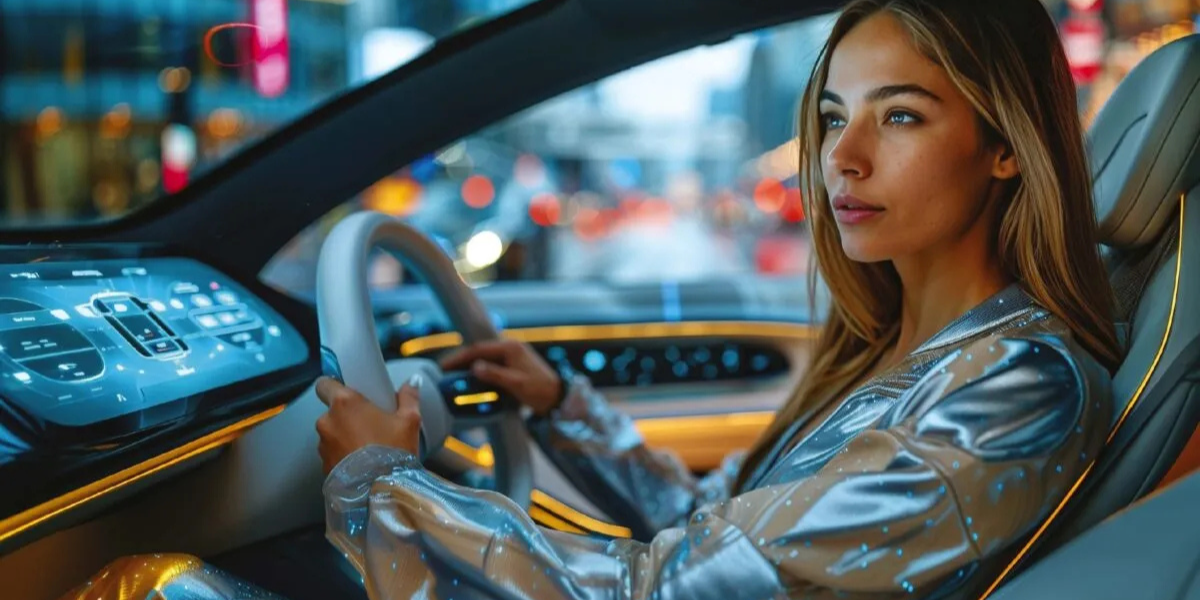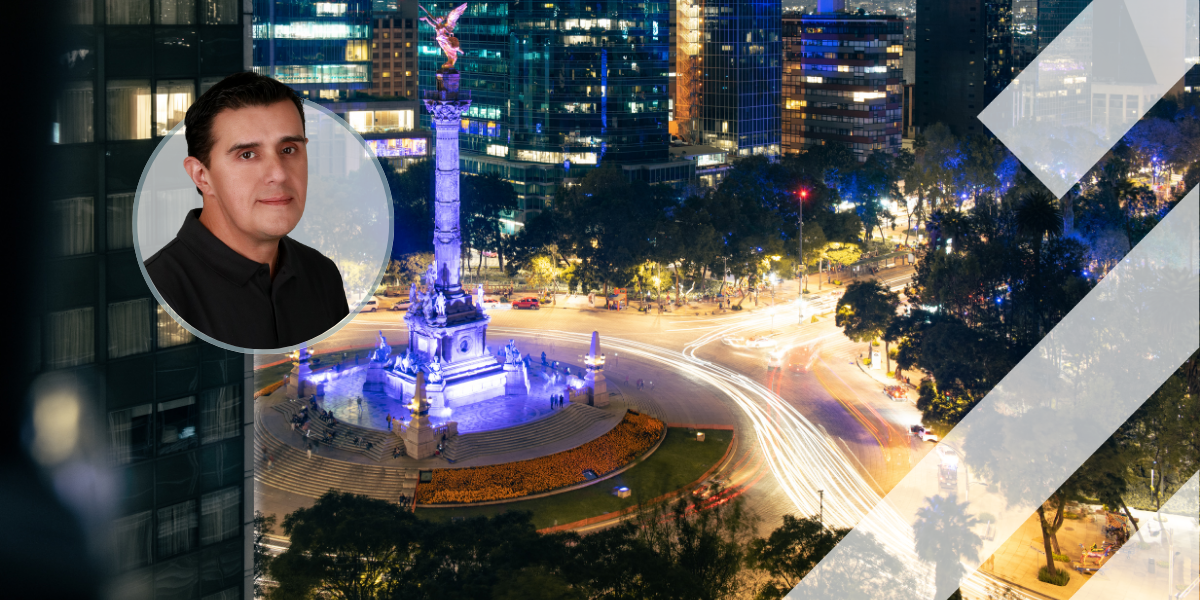“The Coronavirus is speeding up the mobility transition.” (Carlo van de Weijer)
Moderator Carlo van de Weijer, director of the smart mobility research department of Eindhoven University and a member of the Intertraffic Supervisory Board, posed a pertinent question: has Covid-19 changed the face of the mobility sector forever? Has it, in fact, permanently altered mobility behaviour now we are living in a pre-vaccine/post-vaccine world? Working at home, he suggested, is set to become the new normal but if traffic levels remain lower in the immediate aftermath of the lifting of lockdown restrictions will this mean there’s more space for personal modes of mobility? The coronavirus, it would seem, is “speeding up the mobility transition” in ways that were deemed impossible only a few short weeks ago.
“I do think that even in post-Corona times, the fear of cantamination will remain.” (Aurélien Cottet, Transdev)
Opening speaker Aurélien Cottet, MaaS Initiatives Coordinator at Transdev, provided some thought-provoking insight into the latest MaaS developments and what the effects of Covid-19 on MaaS and public transport as a whole are likely to be. Cottet explained that an initial reluctance from some MaaS subscribers to pay for their mobility subscriptions using their smartphones could well be an unexpected by-product of the virus as cash becomes increasingly less attractive a proposition. This also ties in with the current (and entirely understandable) levels of paranoia regarding the use of public transport across Europe. PT ridership has plummeted dramatically over the last six weeks and the same is also true for shared mobility options.
“We might have a total demand-driven public transport system where people have to book their seat via MaaS” (Aurélien Cottet, Transdev)
“Who has touched my shared bike? Who has sneezed in this taxi? Who has touched the door handles?” Cottet wondered – and how will confidence be restored? By reducing mass transit capacity. But, he asked, who is going to pay for buses to be redesigned or for trams to be repurposed to allow for social distancing measures to remain implemented? By making transit demand-driven and, perhaps, using smaller buses more frequently.
The subject of homeworking was never far from the agenda and Cottet suggested another measure to ensure the safety of employees as they gradually return to work is for their employers to stagger office times. “Some employees work from the office from 11 till 3, other from 1 till 5 with the rest of the day at home. This would flatten the curve of employees returning to the workplace.” An attendee asked about the potential rise in private car traffic if PT patrons are going to take some convincing to return. Other than the widescale decontamination of buses, trains, trams and metro carriages (not to mention the stations), what else can be done to ensure congestion levels are not environmentally damaging when the lockdown is even partially lifted? Cottet believes that it will take anywhere between 12 and 18 months for the public’s trust in transit modes to return so suggests that this is where MaaS can come into its own and offer both public and private modes on the same platform.
Paul Speirs (Global Head of Pre-Sales, PTV Group) believes that the key to successful re-emerging into the (literal) sunlight is to understand human behavioural characteristics. Tasked with explaining what PTV’s analytical software has been noticing in its data since the Covid-19 outbreak, Paul used some eye-catching graphics to demonstrate recent traffic patterns in Germany. Comparing Easter Sunday 2019 road traffic with Easter Sunday 2020 it was notable that there had been a 78% drop in journeys – testament to the vast majority of the German populace complying with the regulations. It was a similar tale in the town of Gorlitz on the Polish border where international crossings had dropped by 92%. So what lessons can be learned from these sobering statistics?
“I think most people will go back to normal after Corona, because they have no other choice.” (Paul Speirs, PTV Group)
“We’ve perhaps taken our mobility for granted,” he said. “We all want to get back to what we had before… but has our behaviour changed permanently? Are there new behaviours that we can lock in for good? In a recent survey 50% of respondents said that they will, as result of altering their diet, their attitude to homeworking and their travel behaviour, not go back to their old ways.” This, says Speirs, is an opportunity to lock in the positive alterations we’ve been forced to make.
“In this crisis, we learned that if the message is right, people can change behaviour.” (Paul Speirs, PTV Group)
In terms of traffic levels Speirs is ambivalent about the idea of congestion increasing post-lockdown, wondering if the levels will indeed fluctuate if the paranoia surrounding the safety of public transport continues, but one palpable positive is that employers are learning to trust their employees now that they can see their levels of productivity not being adversely affected by working at home and combining that, in many cases, with homeschooling. It’s harking back to the sense of community spirit – shopping locally, travelling less, making smart travel choices: “We need to lock in those good habits. It can be done!”
“Working at home is a new kind of modality.” (Paul Speirs, PTV Group)
Our final speaker was Chris de Veer, Strategic Advisor Smart Mobility for the Province of Noord-Holland/Amsterdam Metropolitan Area. “Covid-19 has made two modes of transport suffer: public transit, as it can’t accommodate social distancing and shared mobility as passengers feel they can no longer trust the levels of cleanliness.”
“We can't build our way out of this,” he insisted. “It’s ultimately a political decision but we need to focus on sustainable transport modes and reduce the peak congestion levels by continuing to work from home, where possible.”
“We are changing from wide roads to broadband.” (attendee Salvador Saavedra)
Noord-Holland’s population of just under 3m will continue to be encouraged to work from home, even after lockdown restrictions are lifted and de Veer sees this as the “perfect opportunity to influence it.” National governments have a part to play too, he says, by increasing broadband capabilities across Europe, thereby enabling more of the workforce to work from home and ensuring that those still wishing to be mobile have a greater choice of readily available, safe and clean transit modes. As attendee Salvador Saavedra noted, the priority has moved from wide roads to broadband.
Recording and next webinars
This first Intertraffic webinar was hailed a success with a lot of knowledge exchanged and many questions put to the speakers, a clear indication that sharing insight is foremost when the world is turned upside down.




